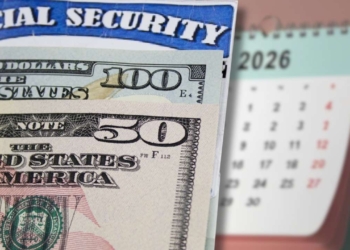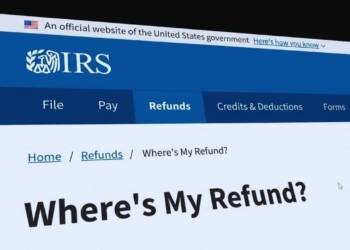SSI is the Supplemental Security Income benefit. In fact, the January check or direct deposit was delivered on December 31, 2024. However, the 2025 Social Security payment schedule has confirmed a new payday before February. Of course, it is the February payment issued in advance. Therefore, it is neither a bonus nor an extra payment.
Actually, the payment date Social Security has set will be January 31, 2025. Hence, the Supplemental Security Income payment will also arrive on the last day of the month, instead of the first day. This is something possible when the normal payday, the first day of the month, falls on the weekend.
SSI is not due on February 1
February 1 will not be a Federal Holiday but it will be Saturday. Social Security can never schedule payments on the weekend. This is done to avoid delays and to allow banks and financial institutions to have enough time to process payments without delays.
This can be great news for SSI recipients because they will receive their monthly payment 24 hours in advance. Nevertheless, it can be weird to see the February payment schedule without a payday for the Supplemental Security Income early in the month.
Instead, the Social Security Administration has scheduled a monthly payment for SSI recipients on February 28. Once more, this will not be extra money but the March payment ahead of schedule.
How much money will SSI recipients get on January 31, 2025?
Not all SSI qualify for the same payment amount. Although the Social Security Administration has set maximum amounts, not all beneficiaries qualify for them. On average,Supplemental Security Income payments can be about:
- $698 for all recipients
- $898 for the under-18s
- $744 for those aged 18-64
- $575 if you are aged 65 or older
As for the maximum amounts, an SSI recipient can get up to $967 if single. Eligible married couples can get up to $1,450, up from $1,415 after the 2025 COLA increase. An essential person can receive up to $584 on January 31, 2025.
What are the eligibility requirements to receive SSI benefits?
Below is a general overview of the eligibility requirements for Supplemental Security Income (SSI) benefits in the United States. Please note that these requirements can change, and specifics may apply differently based on individual circumstances. For the most current and detailed information, visit the Social Security Administration’s (SSA) official website at ssa.gov.
Age, Blindness, or Disability
- You must be aged 65 or older, or
- Blind (with a visual impairment meeting SSA’s definition of blindness), or
- Disabled (unable to engage in substantial gainful activity due to a medically determinable physical or mental impairment).
Limited Income
- SSI is a need-based program. Your countable income (such as wages, benefits, pensions, etc.) must be within program limits.
- Certain types of income (for example, a portion of wages if you work) may be excluded from the SSI calculation.
Limited Resources
- You must have limited resources (assets).
- As a general rule, the 2023 resource limit is $2,000 for an individual and $3,000 for a married couple in certain living arrangements.
- Resources typically include things like bank accounts, cash, and property, though some items (for example, your home and certain personal effects) are excluded.
Citizenship or Authorized Immigrant Status
- You must be a U.S. citizen or national, or
- You must be in certain categories of lawfully admitted noncitizens who meet additional conditions (e.g., certain refugees, asylees, or permanent residents with a qualifying work history).
Residence Requirements
- Generally, you must reside in one of the 50 states, the District of Columbia, or the Northern Mariana Islands.
- In most cases, you cannot leave the U.S. for 30 days or more and retain SSI benefits, although there are some exceptions.







